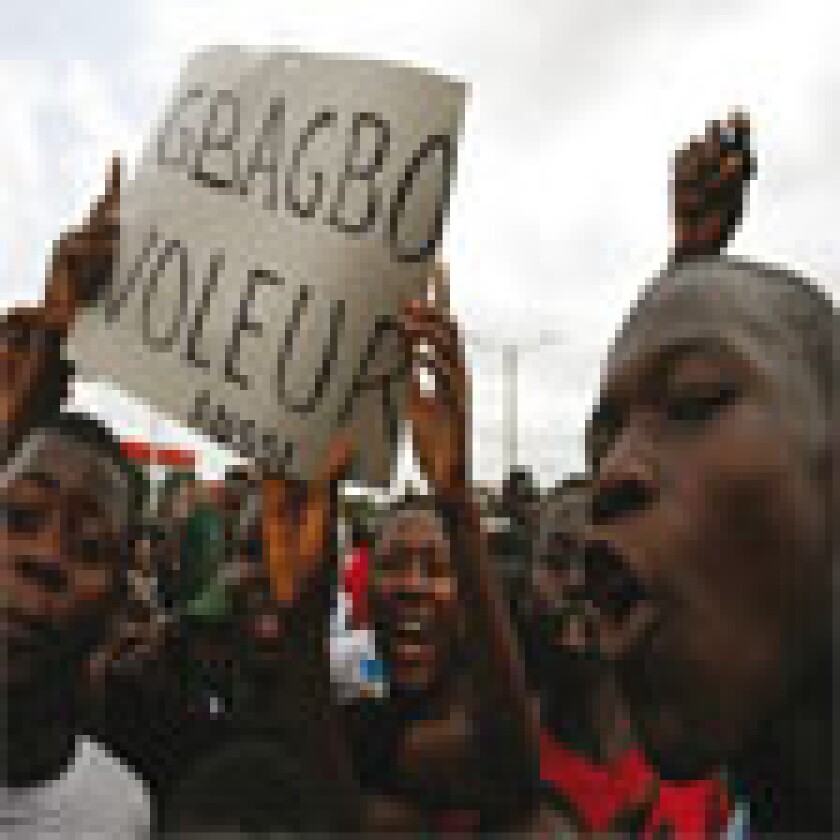The world’s most expensive election per voter has been a long time in coming. It’s hard to think of one major area of economic and political life not struggling because of the fact that, five years since the elections were due to be held, Ivorians are still waiting.
“The crisis came by the presidential election, and it needs to leave by the same route,” says Francis Wodie, head of the Ivorian Labour Party.
When it does come, the election promises to be an intriguing battle, the first between the three major political players on the Ivorian scene. The two major opposition leaders, Henri Konan Bedie and Alassane Ouattara, were both excluded from the previous presidential election in 2000, judged calamitous even by its winner, current president Laurent Gbagbo.
As Emerging Markets went to press, no new election date has been agreed. In any case, a new date will be treated with scepticism by a population that has seen at least six realistic election dates come and go.
During that time the electoral census has been carried out across the territory, and the subsequent provisional electoral roll has been displayed and checked by hundreds of thousands of Ivorians. But the optimism that elections were imminent at the beginning of 2010 has given way to disillusionment – symbolically accompanied by months of electricity blackouts.
“I’m worried by the blockages at the moment,” International Crisis Group’s senior West Africa analyst, Rinaldo Depagne, tells Emerging Markets. “I’m not even sure of an election in 2010 – in any case there are no guarantees. With the three big problems blocking the current process – auditing the electoral roll, renewing the local electoral commissioners and disarmament – even this October would be difficult.”
How much these three issues are genuine grievances or simply delaying tactics by the presidential camp depends on which side you talk to.
Outside the three main parties’ core supporters, many people are tired of the delays and failed promises. The major parties all gain in some way from the extended transition period; whether the ex-rebels controlling the prime minister’s office or the shared ministerial portfolios held by the various political parties.
The United Nations is keen that the gains of the electoral process aren’t lost. “There are delays and frustrations, but there are also positives that we shouldn’t lose sight of: the end of the crisis isn’t far,” Young-jin Choi, head of the UN’s 8,000 strong peacekeeping mission, said in March.
It seems likely the electoral roll will need some sort of double checking. “I don’t think there’ll be an election until the voting list is more favourable to the president,” says Depagne.
Opinion polls suggest Gbagbo as the likely winner, but things remain close, and his camp seem less than confident that the current list will give them victory as it stands.
In terms of disarmament, the overall technical programme seems to have been established, but for a couple of years, progress on the formation of the new army and the joint security force that was meant to secure the elections, has seemed to lack the political will and resources to be anything more than symbolic.
Mistrust and profiteering mean the reunification process has also failed to advance on key matters such as ending smuggling and imposing state taxes and customs in the ex-rebel zone.
